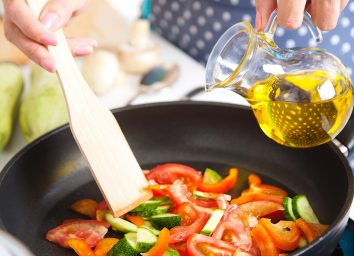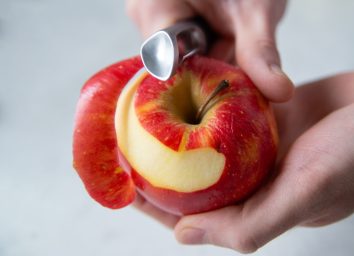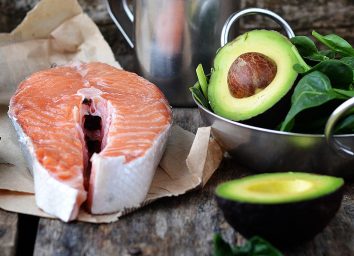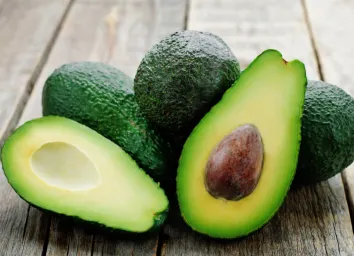10 Essential Nutrients Your Diet Is Missing
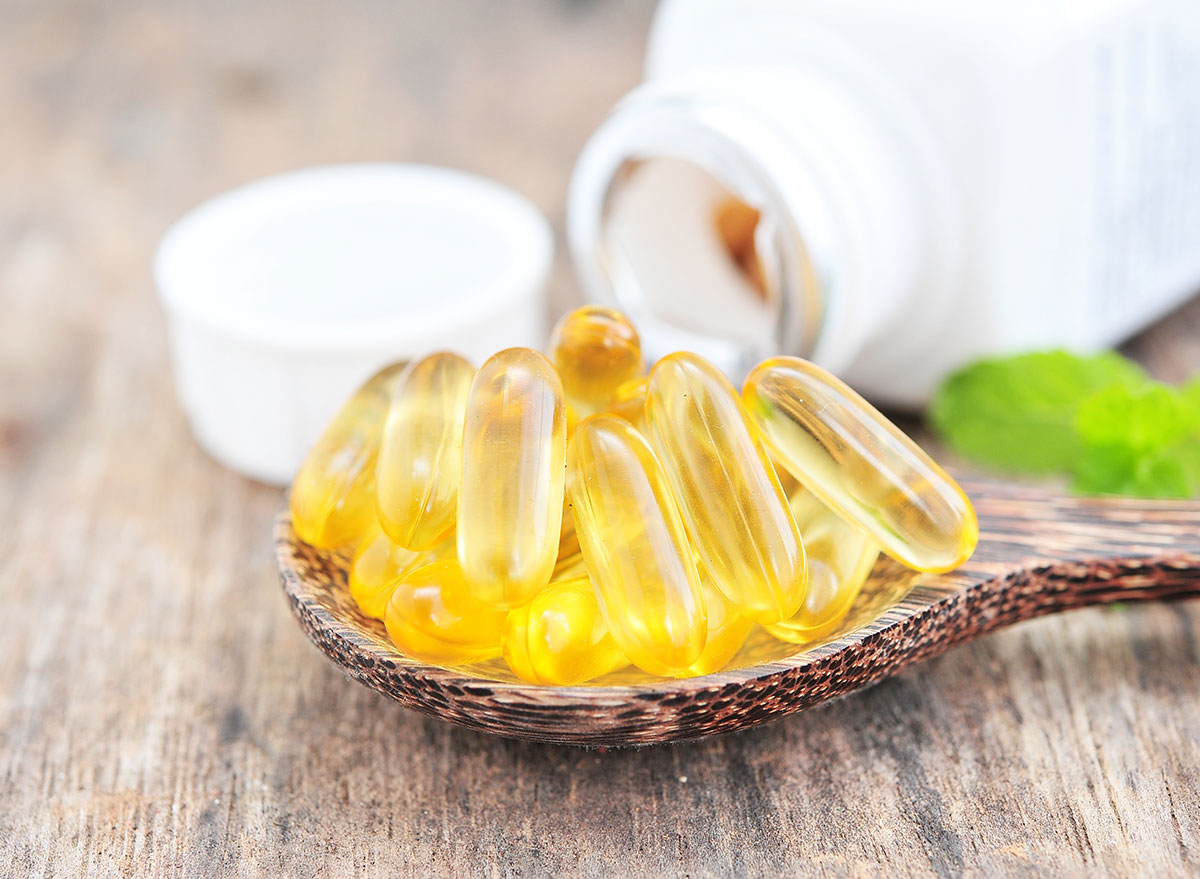
You can't deny that COVID-19 has changed America's relationship with food. While takeout and drive-thru are still options, many Americans are cooking at home more (and maybe for the first time) with the recent social distancing rules in place. Whipping up nutritious meals can be tricky when it's tempting to eat processed foods filled with carbs, sugar, and fat. And it's more important than ever to stock your pantry, fridge, and freezer with a variety of foods to help your body stay healthy.
However, because certain foods may be out of stock every time you head to the grocery, you may start to realize that your diet has begun to shift while you've been quarantined. You may be relying on processed, canned, or frozen foods for most of your meals (because these are the foods that tend to last a long time), which can result in eating less of the fresh, nutrient-dense whole foods you're used to.
To keep your health and diet on track, we asked three registered dietitians for the key nutrients you should be seeking to get during this time (or supplementing if necessary), and the foods that are packed with each one. To read more about what foods are worth adding to your diet during this time, read up on the 11 Foods Nutritionists Are Eating During Quarantine.
Vitamin D
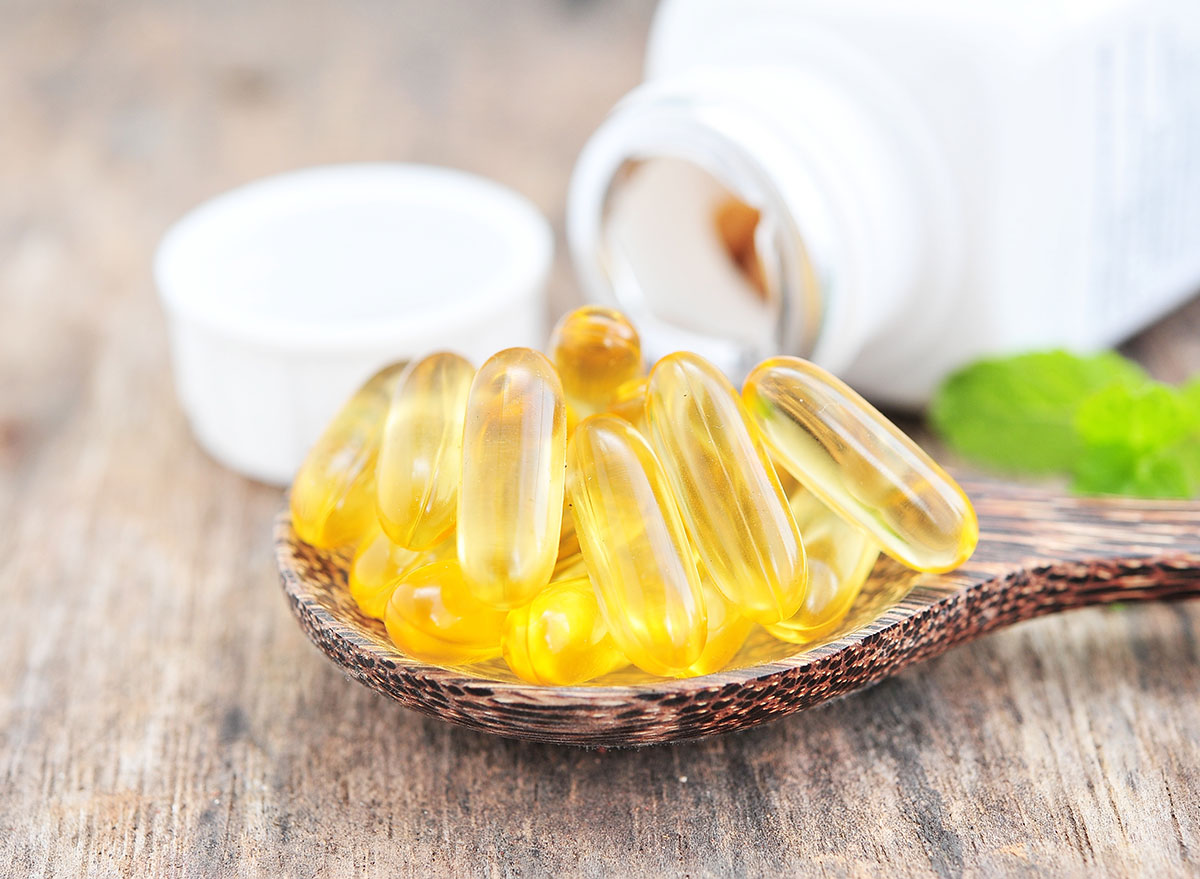
To keep your immune system in tip-top shape, make sure you're getting enough vitamin D. "Vitamin D is critical to immune health. Having adequate levels of vitamin D and supplementing with vitamin D has been found to reduce the risk of getting colds, flu, and upper respiratory infections," says registered dietitian Robin Foroutan, MS, RDN, HHC, Integrative Medicine Dietitian and spokesperson for the Academy of Nutrition and Dietetics.
And that's not the only reason you should be adding vitamin D to your diet during the quarantine. If you're staying inside more hours of the day that you did before coronavirus, your skin is seeing less sun. "In the winter months, anyone not supplementing typically has vitamin D deficiency or insufficient levels of vitamin D," says Foroutan.
"While a few foods have tiny bits of vitamin D in them, it's virtually impossible to get enough vitamin D from food to get your blood levels in an optimum range," say Foroutan. That's why she advises that take a supplement with "2,000 to 5,000 IU per day taken with a meal. Especially if you're spending most of your time indoors."
Foods to eat to get more vitamin D:
- Cod liver oil
- Sockeye salmon
Protein
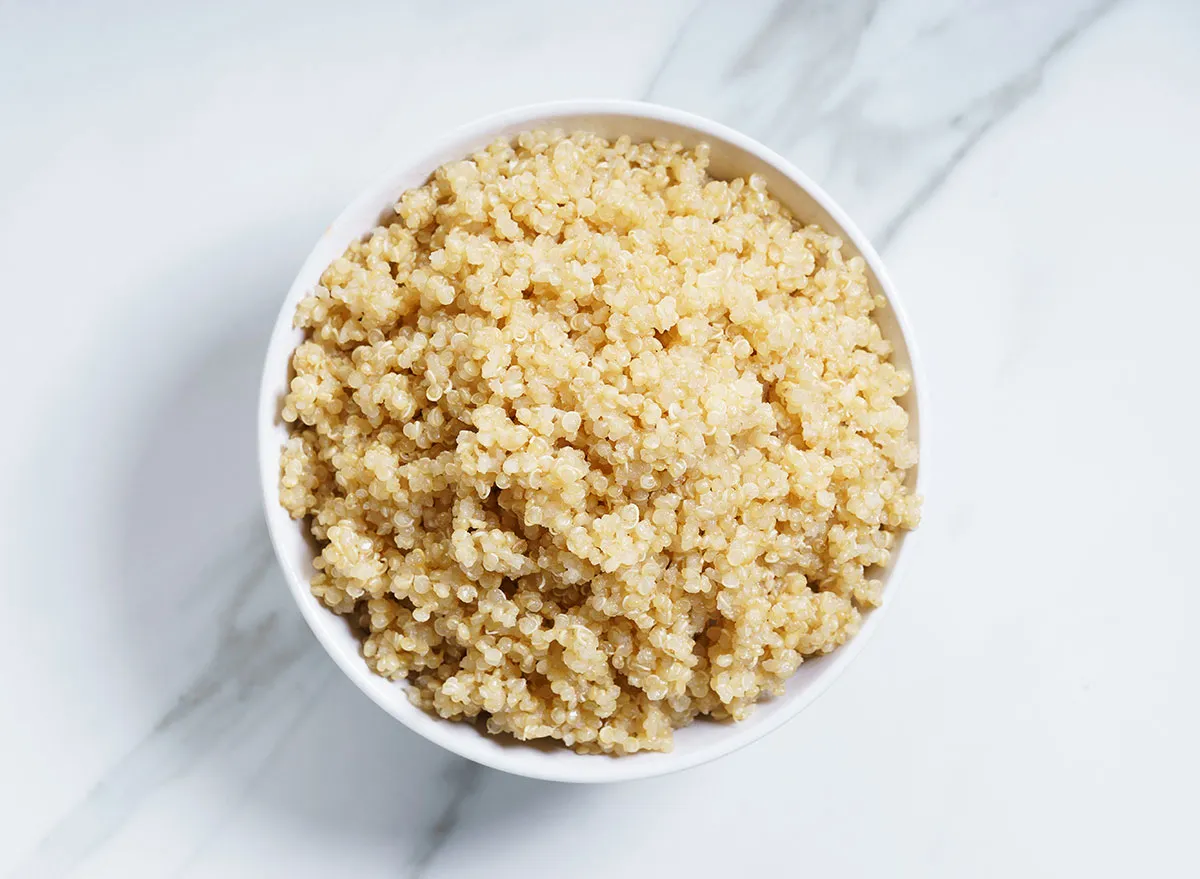
"Adding protein to meals helps to keep you full. Protein is essential for satiety, our muscles, and our bones," says Sammi Haber Brondo, MS, RD, CDN, registered dietitian nutritionist and owner of Veggies & Chocolate. "While it's unrealistic to expect that all of your meals will contain fresh, varied sources of protein, there are ways you can get more protein from pantry staples alone. Many canned, dried, and frozen shelf-stable foods are actually great sources of protein."
Foods to eat to get more protein:
- Quinoa
- Canned beans
- Dried lentils
- Nut butter
Magnesium
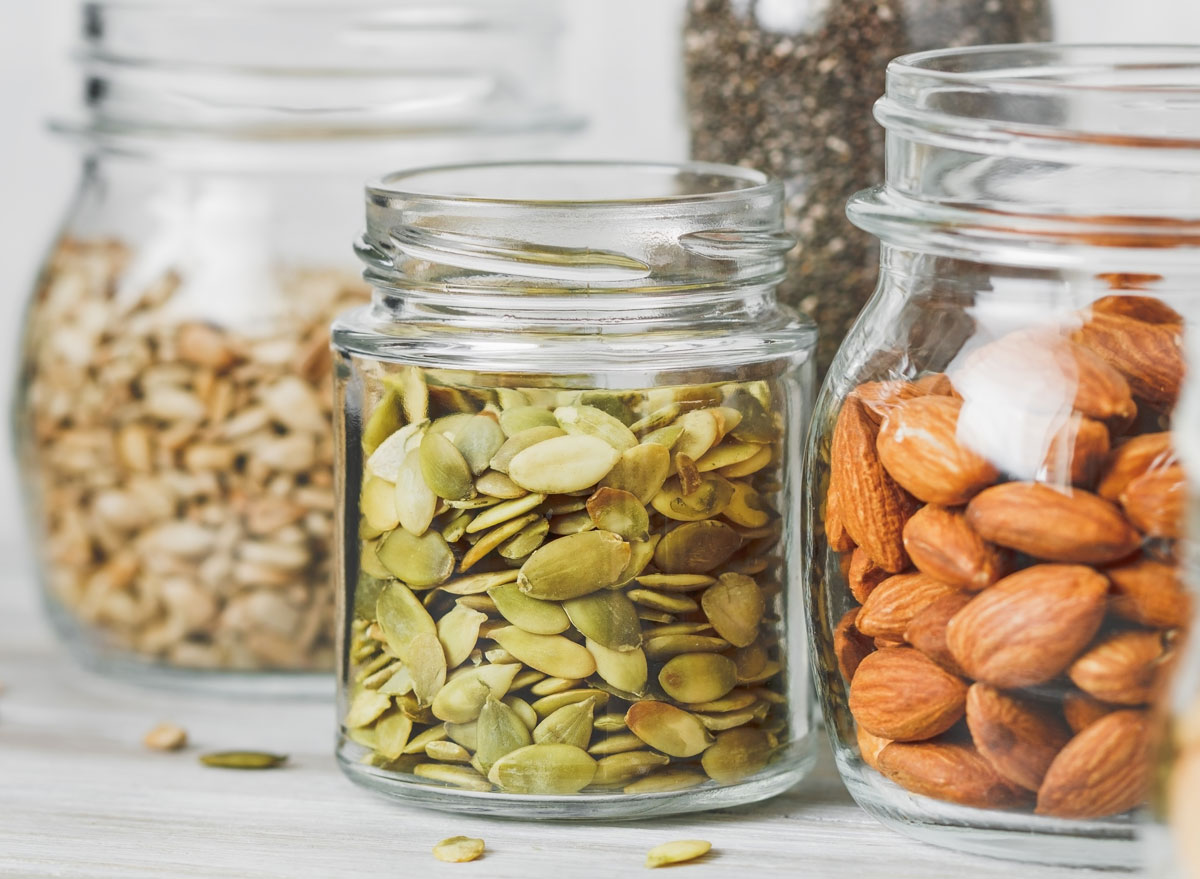
"Magnesium is required for over 300 chemical reactions in your body, so it's instrumental in making sure your body works optimally," says Foroutan. "As far as immune function goes, magnesium is required to activate Vitamin D. So even if you're taking enough vitamin D, but you're deficient or insufficient in magnesium, the vitamin D won't actively protect you."
She says, "By some estimates, 80-90 percent of us don't get enough magnesium. Because we need magnesium to make calming neurotransmitters like serotonin, low magnesium levels can actually contribute to feelings of anxiety and depression. Alcohol and caffeine deplete magnesium levels so that's something to keep in mind as we're enjoying virtual happy hour."
Foods to eat to get more magnesium:
- Pumpkin seeds and pumpkin seed butter
- Spinach
- Quinoa
- Almonds
- Cashews
- Black beans
Antioxidants
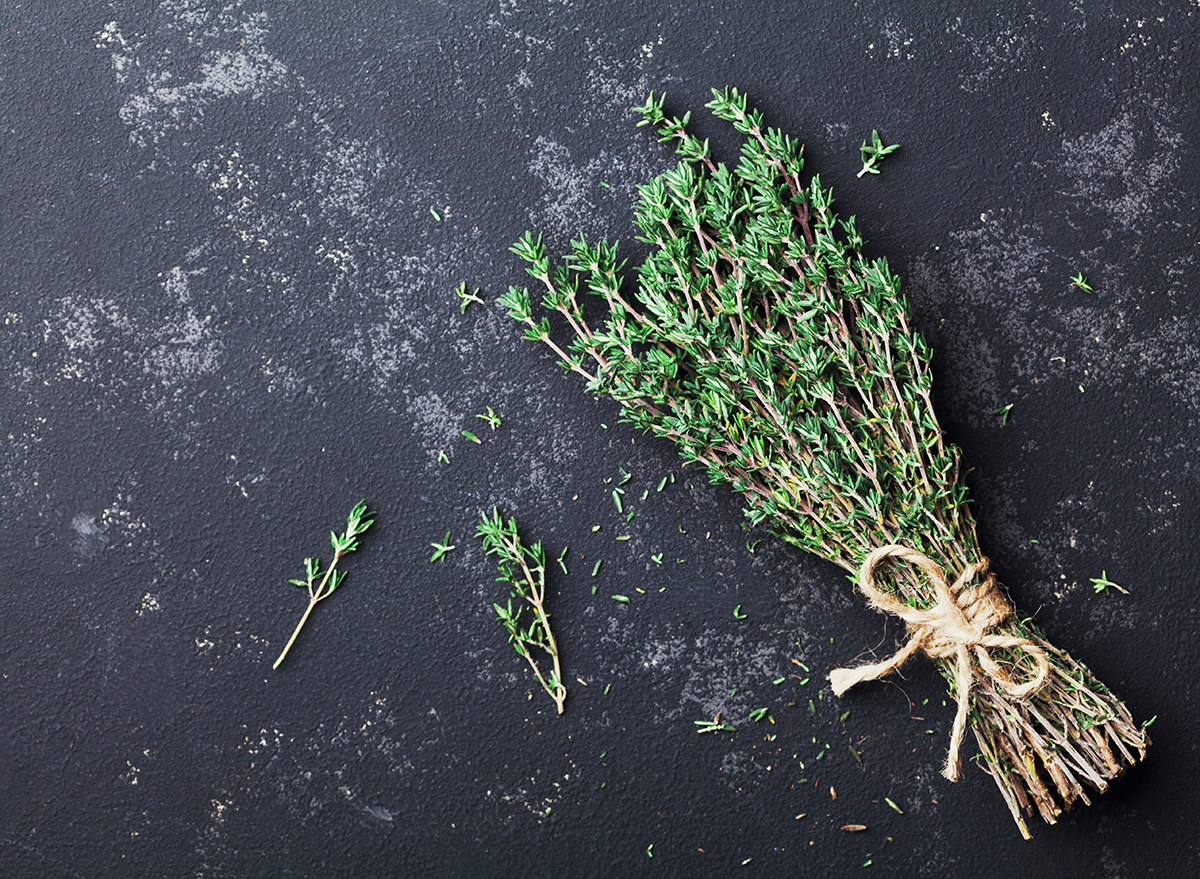
"Antioxidants are a broad category of plant chemicals, aka phytonutrients. They are instrumental in overall health, inflammatory balance, and immune function. These compounds help the body balance inflammation, which is critical to immune function," says Foroutan. "While all plant foods are high in phytonutrients and antioxidants, some specific edible herbs are particularly high in compounds that help your body fight against viruses, support your immune system, and balance inflammation."
Foods to eat to get more antioxidants:
- Thyme
- Oregano
- Turmeric
- Garlic
- Resveratrol
- L-theanine
Vitamin C
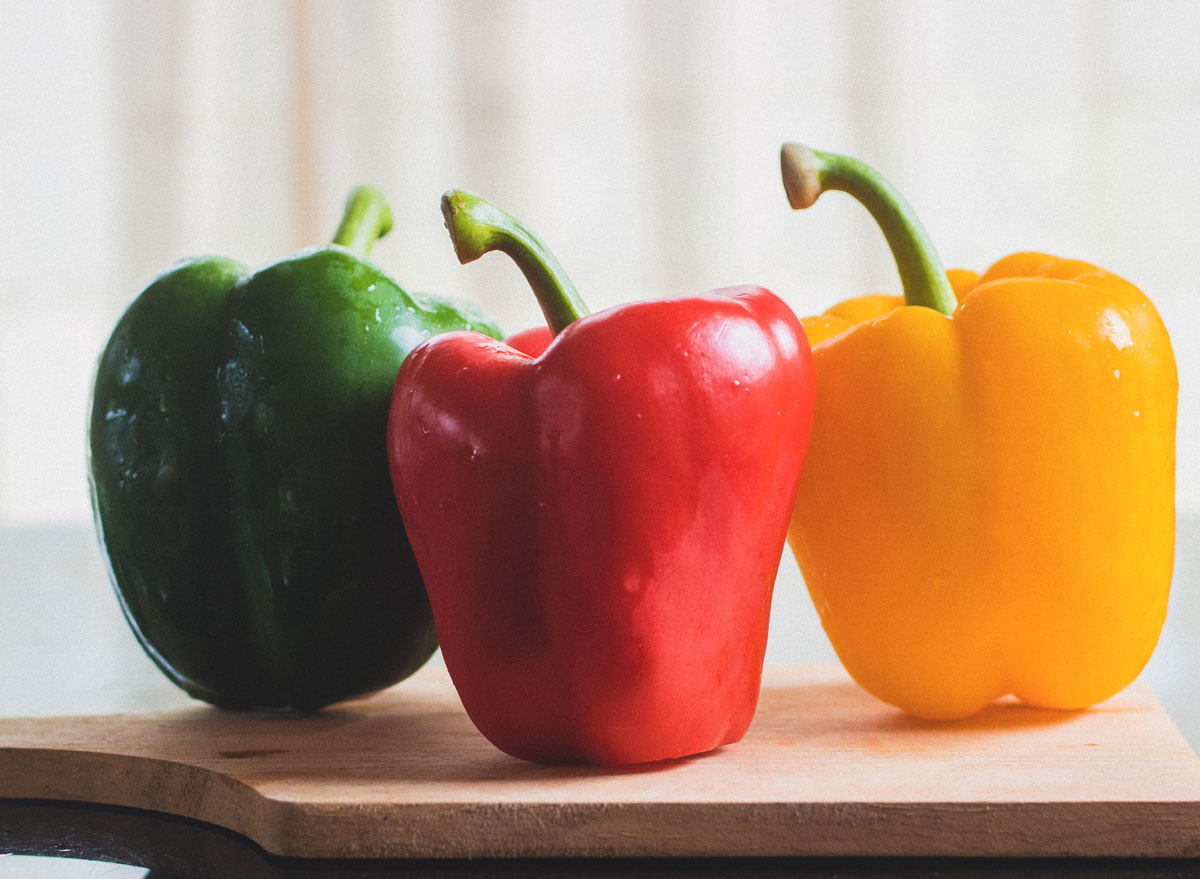
"Vitamin C is one of our body's first lines of defense against any kind of inflammation. This particular coronavirus is notable for triggering uncontrolled inflammation as our immune system tries to fight it. So, the more vitamin C and other antioxidants you have, the better your body can balance any inflammatory reaction, including the kind of inflammation our immune systems launch against bacteria and viruses," says Foroutan.
"Taking 1,000 to 2,000 milligrams daily has been shown to reduce the duration and severity of upper respiratory infections in both children and adults. During times of stress (both physical and emotional stress), our adrenal glands are working overtime, which means they're using up vitamin C. So our requirements right now are higher than usual."
Foods to eat to get more vitamin C:
- Bell peppers
- Broccoli
- Brussels sprouts
- Lemons
- Papaya
- Strawberries
- Kale
- Cauliflower
- Kiwi
- Mango
- Citrus fruit
"If you can get your hands on a buffered vitamin C supplement, I do recommend taking it at this time in addition to eating foods high in vitamin C," says Foroutan. "Because we're all stressed out, we're going to need a lot of vitamin C and a supplement can help ensure that our blood levels are nice and high."
Folate
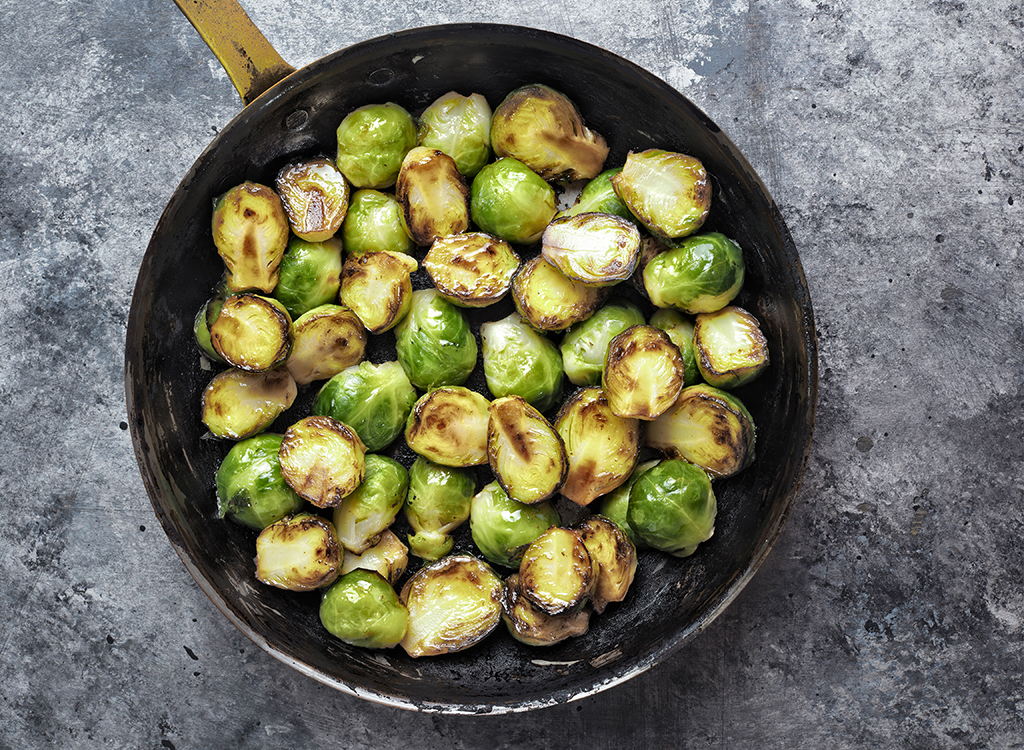
"Green, leafy vegetables are among the richest sources of folate. But, these foods may often go bad sooner than heartier vegetables if you are shopping less frequently," says Whitney Linsenmeyer, PhD, RD, LD, spokesperson for the Academy of Nutrition and Dietetics and Assistant Professor of Nutrition at Saint Louis University. "Choose sturdy green vegetables (i.e. Brussels sprouts will last longer than asparagus), and don't be afraid to rely on frozen or canned versions."
Foods to eat to get more folate:
- Brussels sprouts
- Spinach
- Fortified breakfast cereals
Zinc
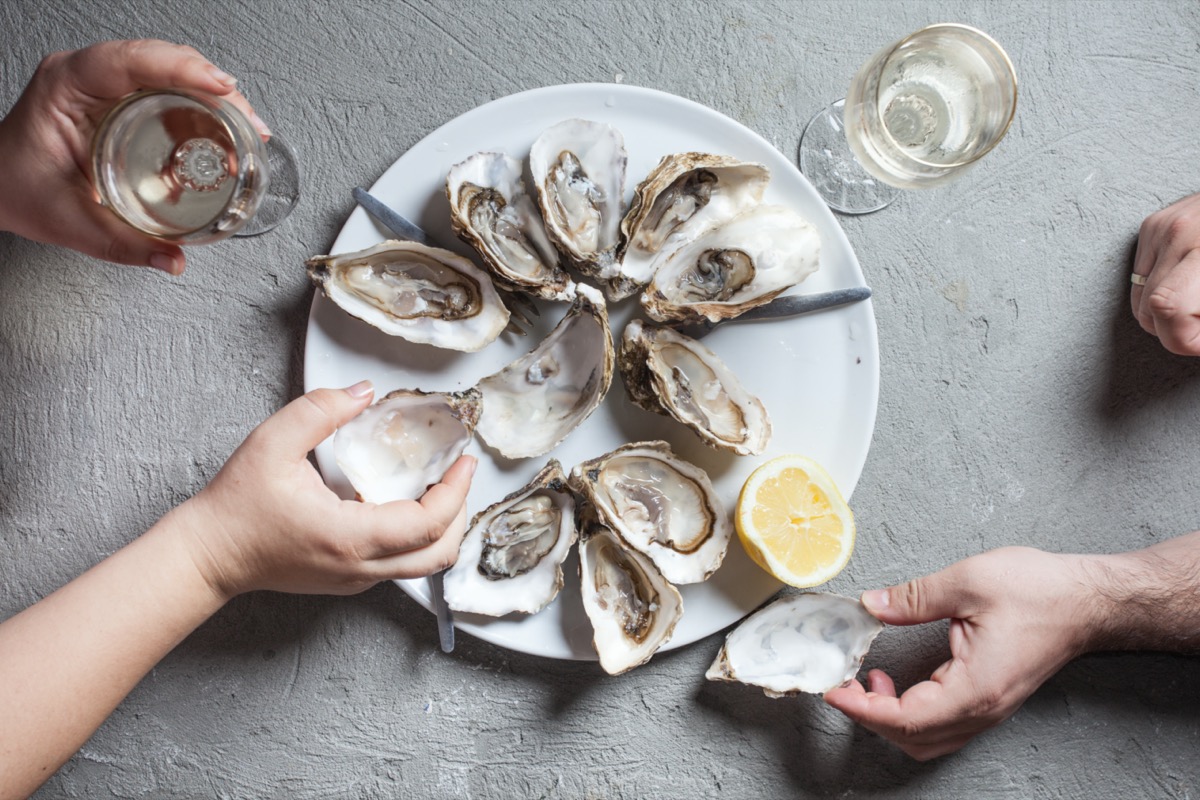
"Zinc is super critical for proper immune function and works in several different ways," says Foroutan:
- It supports the physical barriers our bodies secrete to protect us against viral infection (aka mucus)
- The ion form of zinc interfere with viral replication
- Zinc increases the activity of our innate immune system and can increase the activity and growth of white blood cells. This micronutrient is also required for our adaptive immune cells to recognize infections and make antibodies.
- The micronutrient protects against oxidative stress and inflammation caused by our immune system's fighting activity.
"While eating foods that are high in zinc is important, taking a zinc supplement (20 milligrams per day) within 24 hours of the earliest signs of a cold can shorten its duration by about 30 percent," says Foroutan.
Foods to eat to get more zinc:
- Oysters
- Beef
- King crab legs and blue crab
- Clams
- Lamb
- Chicken
- Vegetarian sources have less than animal foods but are still good to include: tofu, natto (higher than tofu), hemp seeds, pumpkin seeds, beans and lentils
B vitamins
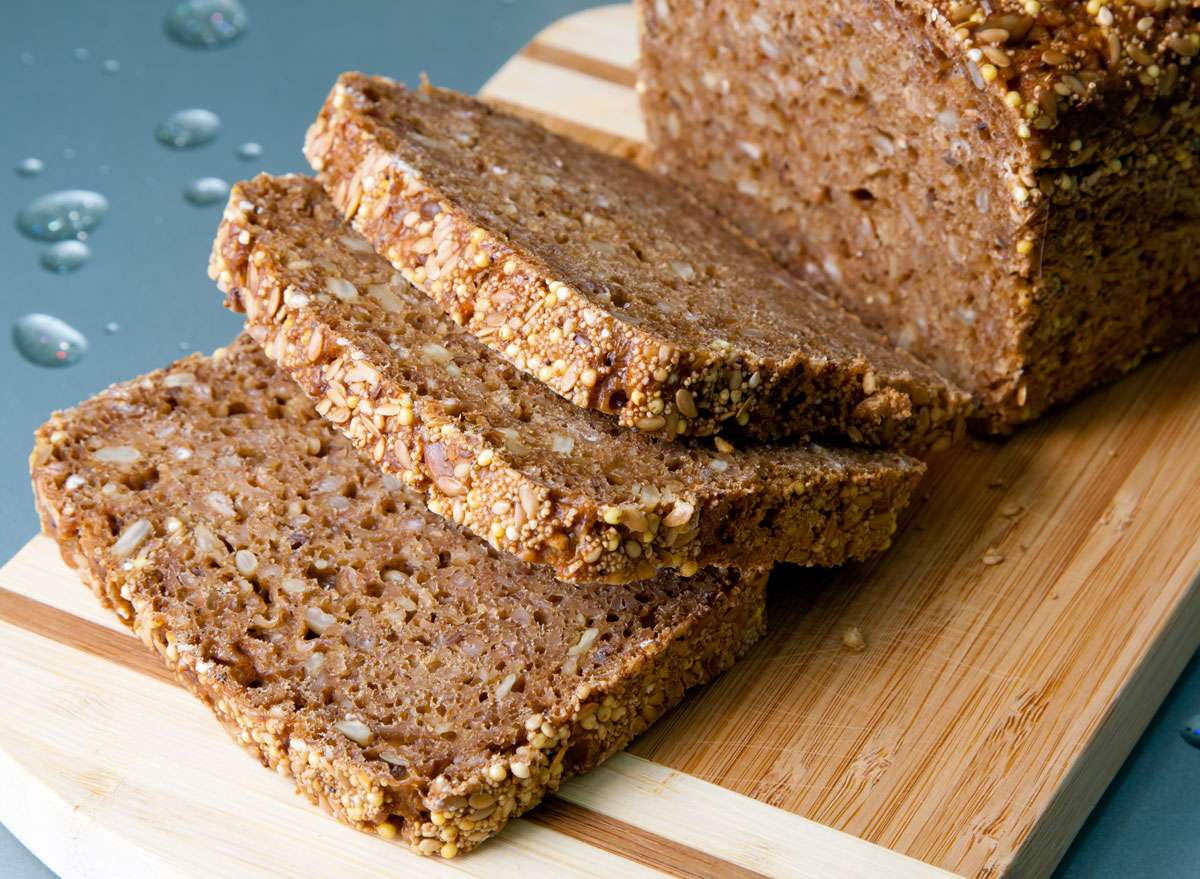
"The B complex vitamins include niacin, riboflavin, thiamin, vitamin B6, vitamin B12, and others," says Dr. Linsenmeyer. "These nutrients are needed for the processes that help maintain good energy levels and brain function."
Foods to eat to get more B vitamins:
- Whole grains
- Dairy
- Beans
- Meat
Melatonin
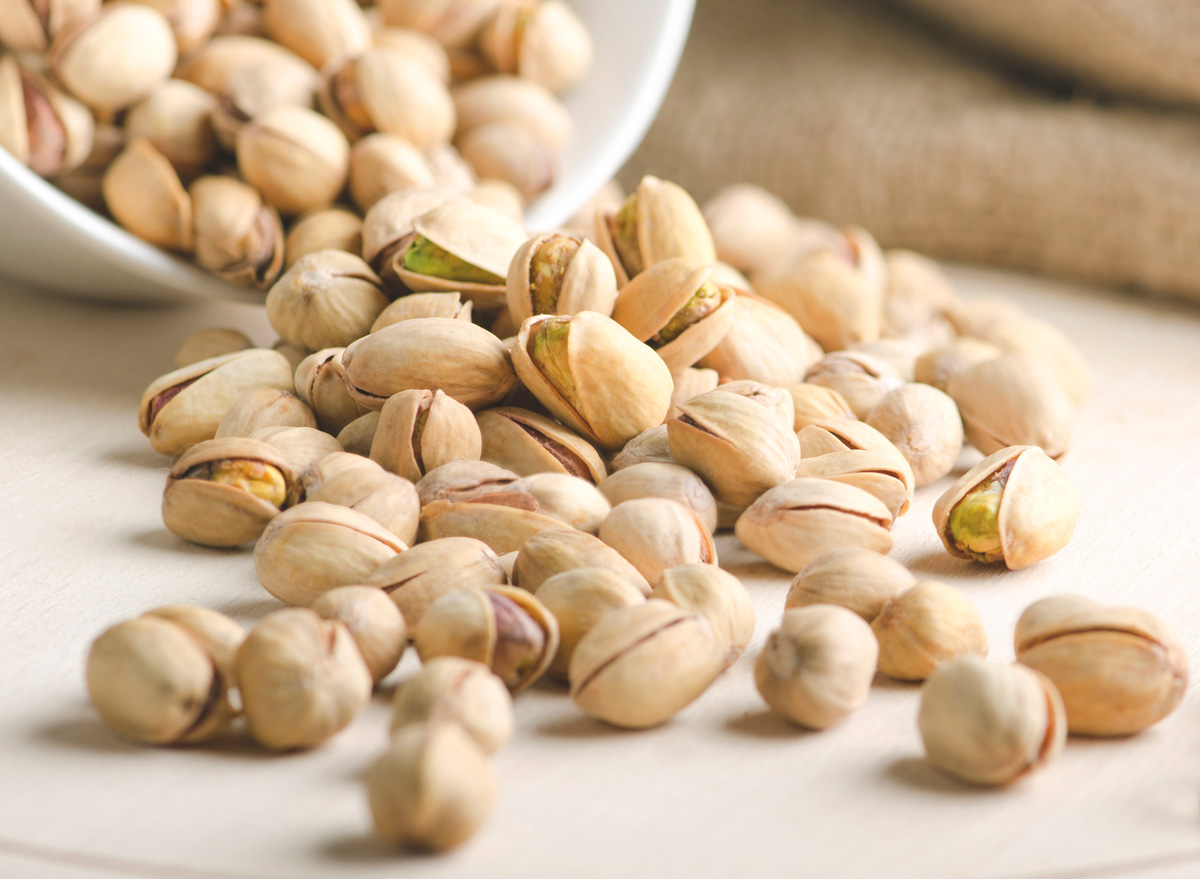
"There have been reports suggesting that melatonin, your body's 'sleep hormone,' may be really important in protecting us from the run-away inflammation related to coronavirus," says Foroutan.
"While our brains make this hormone in response to darkness, modern living interrupts this process, and older adults (who are more susceptible to coronavirus) make much less. Blue frequency and artificial light blocks melatonin synthesis, which negatively affects our sleep-wake cycles. Plus, melatonin is one of our body's natural antioxidants, so low melatonin levels can affect how well our bodies balance inflammation plus disrupt sleep, which weakens immune function," says Foroutan.
"You can optimize melatonin by dimming lights in the evening, turning off electronics an hour or two before bed, and avoiding or reducing artificial light in the evenings. If you choose to supplement with melatonin, 0.5 to 2 mg is all you need."
Foods to eat to get more melatonin:
- Pistachios
- Green beans
- Black and red rice
- Tart cherries
- Red grapes and certain wines, including Tempranillo, merlot and cabernet sauvignon (yes, really!)
Omega 3 fatty acids

"Many Americans struggle to get enough omega-3 fatty acids to begin with, so this may be a nutrient of concern if your diet is more limited than usual," says Dr. Linsenmeyer.
Foods to eat to get more omega-3 fatty acids:
- Chia seeds
- Walnuts
- Flaxseed
